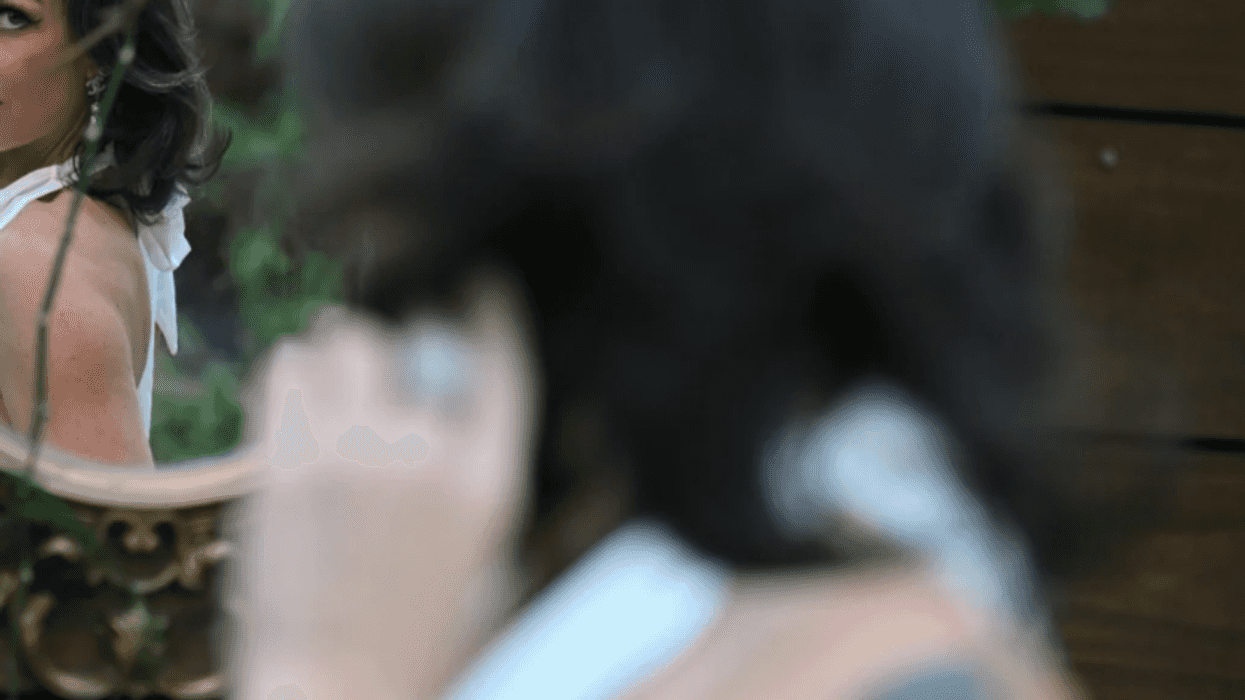Hal Ashby's movies captured a messy, post-1960s America in alternately hilarious and poignant ways. Here, Wes Anderson, Judd Apatow, Alexander Payne, David O. Russell, and Jason Schwartzman talk about their favorites.
In the 1970s, Hal Ashby made a series of films so brilliant and yet so utterly different from one another that if you didn't know who the director was, you might not think they were made by the same person. His films move effortlessly from the lavish mansion in Being There, a comic and prescient look at the effects of television on America, to the grim Veterans' Administration Hospital and boardwalks of Venice Beach, California, in Coming Home. At his best, Ashby was able to make the personal political and the political personal, with humor and without boring the audience.It is not surprising that Ashby's films feel relevant at the moment, since our fragmented political climate isn't that different from the post-Vietnam-and-Watergate years in which they were made. But unlike their latter-day counterparts, Ashby's movies take on complicated subject matter without being reductive, telling stories through human relationships with no clean resolution. There is more said about American politics in Being There or about the women's movement in Shampoo than in so many of the films that take on those subject matters directly.During the late 1960s in Hollywood, the studios realized that there was something going on in the country that their corporate cultures didn't entirely understand, and that as a result, their movies were out of sync with younger audiences. Then along came the indie hit Easy Rider, and it became clear to executives that they might need to open things up and look for ideas in new places.Hal Ashby was a beneficiary of this new freedom, but he wasn't a kid fresh out of film school. He had hitchhiked to California, away from his Mormon family in Utah and what must have been a difficult childhood-there were financial problems, his parents divorced, and his father committed suicide when Ashby was 12.He had come up through the studio system, starting as a copyboy at Universal, a job he got through the unemployment office. He later worked as an apprentice editor, an especially arduous task before computers, and gradually became the editor on movies such as The Loved One and the original Thomas Crown Affair. He was said to be obsessed with his work, to the point of sleeping in the cutting room for days on end, and it took a physical toll.Ashby did find the time to become politically active, and was an early supporter of the civil-rights and antiwar movements. He had been married and divorced three times by the 1960s, and in keeping with the era, he switched from heavy drinking to smoking a lot of pot.In 1967, at the age of 38, Ashby was threatening to leave editing behind when he won an Oscar for In the Heat of the Night. In a fortunate twist of fate, Norman Jewison, for whom Ashby had edited several films, dropped out of directing The Landlord, and helped Ashby step into the project. Finally, at 40, Ashby had started his new career as a director, a rare transition for an editor, especially at his age. He seemed to enter this period of his career with a renewed openness and an experimental spirit. He used his difficult background to emphatically tell the stories of people who live on the edges of society.Ashby never received the acclaim enjoyed by contemporaries like Francis Ford Coppola or Martin Scorsese-even though he made a bunch of the best films of that period. A few things worked against him: His material was so varied and his touch so light that his body of work isn't easy to categorize.The important critics of his day, such as Pauline Kael, didn't love his work, and he was regarded as difficult to work with because of his strong antiauthoritarian streak. Sadly, his work fell off after the 1970s-some say because of drugs-and he died relatively young, of cancer, in 1988, before he could rebound and find his place again.We asked some of the writers and directors who have been influenced by his work to tell us about their favorite Hal Ashby movies. Here's what they had to say. -JENNIFER WACHTELLLEARN MORE See Peter Biskind's excellent Book Easy Riders, Raging Bulls: How the Sex-Drugs-and-Rock 'N' Roll Generation Saved Hollywood
Alexander Payne on The Landlord
Hal Ashby directed an astonishing string of films in the 1970s-Harold and Maude, The Last Detail, Shampoo, Bound for Glory, Coming Home, and Being There. His achievement grows even more staggering when one adds his little-known, little-seen debut feature, The Landlord.Norman Jewison, often interested in films about race relations, had developed The Landlord for himself to direct. Deciding instead to pursue Fiddler on the Roof, he agreed to produce The Landlord as the first feature directed by his Oscar-winning editor Hal Ashby.I don't want to tell you much about it. Discover it the way I did: Just see it. It contains all the gentleness, eccentric rhythms, oddball humor, brilliant editing, and deep humanism that mark his other films, and like his other films, it's utterly unique. The performances are sensational-particularly by Beau Bridges, Lee Grant, Louis Gossett, Jr., and the great Diana Sands. Add cinematography by Gordon Willis-his third film-in case you need more convincing. All right, it's a little uneven at times, but so what? It's wonderful to watch a great artist still searching for economy of style.I fell in love with The Landlord in 2003, and watched it over and over again. Its look influenced Sideways more than any other film. Sadly, it's still not out on DVD, and the out-of-print VHS pans and scans the CinemaScope frame. TCM runs it every once in a while; try to find it there, or add to the cry for a DVD release.ALEXANDER PAYNE is a filmmaker and screenwriter. He directed and wrote Sideways, Election, and a segment in Paris, Je t'Aime, among others.LEARN MORE The Landlord
Jason Schwartzman on Harold and Maude
Every Sunday since I can remember my family would go to the movie theater. I looked forward to these outings all week. Honestly? There is no question that I liked movies, but I think what I truly loved was the whole experience of going to them: finding a show time in the paper, looking for parking, buying tickets, and, hopefully, getting a popcorn.But, quite simply, movies were more about the time together with my family than about the actual film. Bill Murray, Dudley Moore, and Steve Martin couldn't compete with seeing my dad laugh till he cried.Then comes 1997. I was a senior in high school and was hoping to go to college and study music. I definitely hadn't planned on meeting Wes Anderson and being cast in his movie. When I found myself fortunate enough to be a part of Rushmore, my mother, hoping it could help me for the work ahead, suggested I watch three films: Dog Day Afternoon, The Graduate, and Harold and Maude.I put in Harold and Maude first.Holyshitfuckcrazyshit.From the second it started, my life as I knew it was over. For the first time, a film made me feel the way music always had. When two strings on a guitar are out of tune, they vibrate very quickly. And as the strings become more in tune, the vibration changes, it slows, and you can actually feel them become in tune. (Note: It gets cheesier.)Watching the movie, I felt myself become in tune with the TV screen. I felt warm. I felt stronger. I felt safe. I had never seen anything like it! Or rather, I had never seen anyone like Bud Cort before! This wasn't like Lethal Weapon, where Mel Gibson is blowing stuff up, or Singin' in the Rain with Gene Kelly dancing like some god or the Wizard of Oz, or Ghostbusters, for that matter. No! This had Bud Cort-someone I could all of sudden relate to. I could relate to his feelings. The frustration. The alienation. The anger. The desire to be acknowledged by the right person.| Quote: |
| This wasn't like Lethal Weapon, where Mel Gibson is blowing stuff up, or Singin' in the Rain with Gene Kelly dancing like some god ... No! This had Bud Cort-someone I could all of a sudden relate to. |

Wes Anderson on The Last Detail
WES ANDERSON: I have not had any luck trying to come up with anything. Maybe someone could ask me some questions, and I could try to answer them?GOOD: When was the first time you saw the movie?WA: I saw this movie in the library of the University of Texas at Austin in 1988, long before the advent of the DVD. They had little booths, and you could check out the movie with your student ID, but it could not leave the building. You would walk by the other booths and look in a window at each person watching their VHS tape. They were looking at Fellini movies and Fassbinder movies and Antonioni movies and that kind of thing because that was all you could get in the library. When I saw The Last Detail, I was struck by its stark sadness, and by the desperation of its characters to snap out of the monotony and repression of their gloomy, Eastern, military winter. That sentence is a bit much, but I'm trying to jam everything into it. The story is about two sailors (Jack Nicholson and Otis Young) delivering a third (Randy Quaid) cross-country up the coast to prison for eight years, and the trouble they try to get into to distract themselves along the way.G: Explain why you looked at this movie again in preparation for the last one you did -and what that means?WA: I watched this movie with my collaborators Roman [Coppola] and Jason [Schwartzman] because we were getting ready to make a movie about three sort of confused boys on a train, and The Last Detail follows more or less the same lines. Not to say that we stole our whole idea from it, but it crossed our minds. Also, this movie is always captivating, but it does not have a terrific plot, and maybe it might not have one at all-and that was encouraging to us because we didn't have one either.G: What did you and your DP get from this?WA: Well, my director of photography, Bob [Yeoman], and I have always liked this one because it has no colors in it. This is because they are in Navy uniforms in the snow.G: Were you looking at it for performance or just camera?WA: Whenever I am getting ready to make a movie I look at other movies I love in order to answer the same recurring question: How is this done, again? I can never seem to remember, and I don't mean that to be glib. I also hope people don't throw it back in my face. Making a movie is very complicated, and it seems like kind of a miracle when it actually works out. Hal Ashby made five or six great movies in a row, and that seems to be practically unheard of.| Quote: |
| Making a movie is complicated, and it's like a miracle when it actually works out. Hal Ashby made six great movies in a row-practically unheard of. |

David O. Russell on Shampoo
The film opens in the dark, as soft strains of the Beach Boys' "Wouldn't It Be Nice," which will also end the film, trickle in with the sounds of Lee Grant and Warren Beatty getting it on. But we can't see them; we can only hear them. The first sound in the film is Beatty's sex grunt. The first time we see his face is when he answers the ringing phone in the dark and the keypad throws a soft orb of light from chin to brow. What a great opening, what a great shot, what great sounds, and music. What a great feeling. Even the title is fun and sexy-Shampoo!I was 17 when I saw it (six times, no exaggeration, in the theater with my friends), and I can still feel the beginning of that world in the film-a warm, mischievous, life-is-young-and-the-world-is-fun feeling, like when I was having sex with my high school girlfriend in her bedroom every weekend. Heaven. The film is the quintessence of what the world felt like to me in 1975 (though the film is set in 1968): loose, a little lost, a bit sweet, naïve, sincere. It's America, brimming with candy and possibilities, though we might still fuck it up and not figure out how to be happy (Vietnam, Watergate, Iraq?).In a way, the country is like the hair salon Beatty's character presides over in the film: Do we have enough bounty to hang ourselves? He is surrounded by a surfeit of beautiful, prosperous women every day as the only straight guy in this candy shop, and it's fantastic, but, wow, also a real pain in the ass, with the juggling of the women and all their needs and problems, plus his own, and no time to think. Is it fantastic or more a pain in the ass? Answer: Both. Hanging over all this is the classic 1970s welschmerz of "We are all so full of shit" with a post-1960s hangover of "Oh, grow up."There's the ominous feeling that Beatty's lothario is dropping the ball on getting married and settling down (an ironically old-fashioned measuring stick), the way Nicholson couldn't settle down in Five Easy Pieces, leading a way of life Nicholson's character describes as "auspicious beginnings" that never come to maturation. Yet in Shampoo, Beatty's character and Ashby's direction also show how the establishment is just as full of shit as the kids in the candy store. The banker is too dim to understand the investment value of Beatty's gifted hairdresser, and the rich older crowd at the election dinner doesn't understand Nixon, or the portent of what is happening politically.The film has all the natural comedic ease and dramatic understatement (which can be powerful) of Hal Ashby's direction, but you can't talk about Shampoo without talking about Beatty, who co-wrote the screenplay with Robert Towne, and produced it. No other writer-actor (and director, though not on this picture) embodied all this American bounty, indulgence, sexiness, careless fun, and self-critical intelligence more than Beatty, especially in this picture. He is harried (as only Beatty can be harried) and yet focused, disheveled yet elegant, courteous yet rakish, befuddled yet sharp. America, right? This comparison is working.| Quote: |
| Set in 1968, Shampoo is the quintessence of what the world felt like to me in 1975: loose, a little lost, a bit sweet, naïve, sincere. It's America, brimmingwith candy and possibilities, thoughwe might still fuck it up. |

















 Otis knew before they did.
Otis knew before they did.